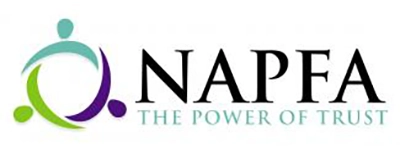 Peak Stuff
Peak Stuff
Stuff is a pretty generic term, but it has a certain specificity. A homeless person with a grocery cart has a certain amount of stuff. A dog that collects its toys in its favorite spot has a lot of stuff. Many people seem to have a lot of stuff.
My parents both passed away within the past few years. They had a lot of stuff. My Dad was into baseball and trains. My mom was into miniatures (think: doll houses). Dad died first and somewhat blessedly; Mom’s dementia was already in MIL power albeit on its way to full AB. The blessing was that mom didn’t seem to mind much what we did with the stuff.
Stuff. There was: So. Much. Stuff.
Where Did We Get This Stuff?
Whole internets have been written about why people collect a bit more stuff than they need. TV shows about hoarding stuff have quite the following. People trying to pawn their stuff seems to make for good TV too.
Marie Kondo both adds to stuff by selling books about getting rid of excess stuff and wages a one-woman (polite, grateful, and gentle) war on the presence of unneeded stuff.
Not to be outdone by a Japanese method for seeking simplicity and decluttering, Swedish Death Cleaning has emerged as another option for management of stuff in order to prepare for our last days in a healthy and de-stressed manner.
The common thread of all these stuff-management concepts is that we have a natural tendency to hunt and gather more stuff than we can possibly enjoy and use. Yet, we hate waste. We don’t want to admit that we’re done using our stuff. Even worse, getting rid of stuff is high friction and head-trash generating.
Throw stuff away? “Way to go! Just bloat that landfill with your poor planning and first world appetites! I bet someone still wants this. I can probably fix it and then use it some more. After our next PCS, we’ll use this some more.”
Give stuff away? “Who wants it? Will they be offended if I offer it? Will someone else be offended if I didn’t offer it to them? It’s pretty valuable, surely, I can get some of my money back, right? This stuff is a pain to move, I can just wait until someone wants to come get it. Maybe I’ll have time to find a home for this in one of those online groups…”
Sell the stuff? “Is eBay still a thing? I guess I could sell on Craigslist or Facebook Marketplace, I probably won’t get murdered by a stranger. Would anyone buy this? Maybe a garage sale… I’ve always liked having strangers come to my private home to nickel and dime me…”
It’s easy to see why just keeping stuff becomes the default. The other options are somewhere between a hassle and too much self-examination.
When I’m first getting to know client families, there are two pretty universal statements that they align with:
- We don’t want to be a burden to our kids.
- We prefer experiences more than stuff.
These sentiments are cause for hope.
Circling back to my parents’ deaths… My parents downsized to a two-bedroom apartment a few years before my Dad died. They culled the herd of stuff just enough to cram into the apartment (plus a sizable storage unit). Nonetheless, it took days of unpleasant sifting and lifting to sort what my dad kept that my dementia stricken Mom most certainly did not need. Games without all the pieces, framed pictures that hadn’t seen daylight in a decade, plastic souvenir cups with dried Coca-Cola goo in the bottom, and papers.
Oh, the papers. The man had terabytes of papers. A few were necessary. The vast majority were just papercuts waiting for a victim. If Dad had used any of his excess stuff in the last decade, there should have been fingerprints penetrating the quarter inch force field of dust all over it.
Clearly, it’s not the end of the world to sort and dispose of a loved one’s belongings. TV and movies teach us that it’s a rite of passage. I’ll wager a guess that I’m not the first person who would have liked to devote those hours and days after his death to better forms of celebration, grief, and remembering.
When my mom passed, it was a different story. Because of her dementia, she didn’t really need much. In her last few years, my siblings and engaged in a continuous process of “give away or throw away” so that the final effort took barely a couple of hours. It was not a bad experience, and I don’t think any of us resented the modest workload.
Back to Peak Stuff
We live in a society of unimaginable abundance. The families I talk to clearly enjoy people and memory making more than acquisition of widgets, chachkies, and future landfill detritus. It gives me hope that maybe we could reach Peak Stuff—a point where the norm is to gather only what truly sparks joy so that we don’t have to divest that which does not.
Perhaps, the earlier we decide for ourselves that we’d like to declare, “This is as much stuff as I really want to have responsibility for (or give my heirs responsibility for), the earlier we can focus on the enjoyment of those experiences.
Cleared to Rejoin
Readers of my blog know I’m a fan of Bill Perkins’ book Die With Zero. His thesis is that we should die with a big pile of memories and a pretty small pile of dollars by matching our spending to the periods of health and access to family and friends rather than keeping too much until our last decades. While dying with zero stuff isn’t any more practical than actually leaving a rubber check for the undertaker, minimizing acquisition, accumulation, and compounding of things that we struggle to truly enjoy (and no one else will want either) is a great way to avoid leaving a burden while decluttering our own lives. It frees up resources for experiences.
We’ll all reach Peak Stuff. It may be when we die. It may be when we downsize after kids are grown and flown. It may be when we choose to say, “I’ve got enough. More will make someone unhappier: me or my heirs. Enough is enough, time to do something about all this stuff.”
Fight’s On!
Winged Wealth Management and Financial Planning LLC (WWMFP) is a registered investment advisor offering advisory services in the State of Florida and in other jurisdictions where exempted. Registration does not imply a certain level of skill or training.
This communication is for informational purposes only and is not intended as tax, accounting or legal advice, as an offer or solicitation of an offer to buy or sell, or as an endorsement of any company, security, fund, or other securities or non-securities offering. This communication should not be relied upon as the sole factor in an investment making decision.
Past performance is no indication of future results. Investment in securities involves significant risk and has the potential for partial or complete loss of funds invested. It should not be assumed that any recommendations made will be profitable or equal the performance noted in this publication.
The information herein is provided “AS IS” and without warranties of any kind either express or implied. To the fullest extent permissible pursuant to applicable laws, Winged Wealth Management and Financial Planning (referred to as “WWMFP”) disclaims all warranties, express or implied, including, but not limited to, implied warranties of merchantability, non-infringement, and suitability for a particular purpose.
All opinions and estimates constitute WWMFP’s judgement as of the date of this communication and are subject to change without notice. WWMFP does not warrant that the information will be free from error. The information should not be relied upon for purposes of transacting securities or other investments. Your use of the information is at your sole risk. Under no circumstances shall WWMFP be liable for any direct, indirect, special or consequential damages that result from the use of, or the inability to use, the information provided herein, even if WWMFP or a WWMFP authorized representative has been advised of the possibility of such damages. Information contained herein should not be considered a solicitation to buy, an offer to sell, or a recommendation of any security in any jurisdiction where such offer, solicitation, or recommendation would be unlawful or unauthorized.

 Peak Stuff
Peak Stuff



